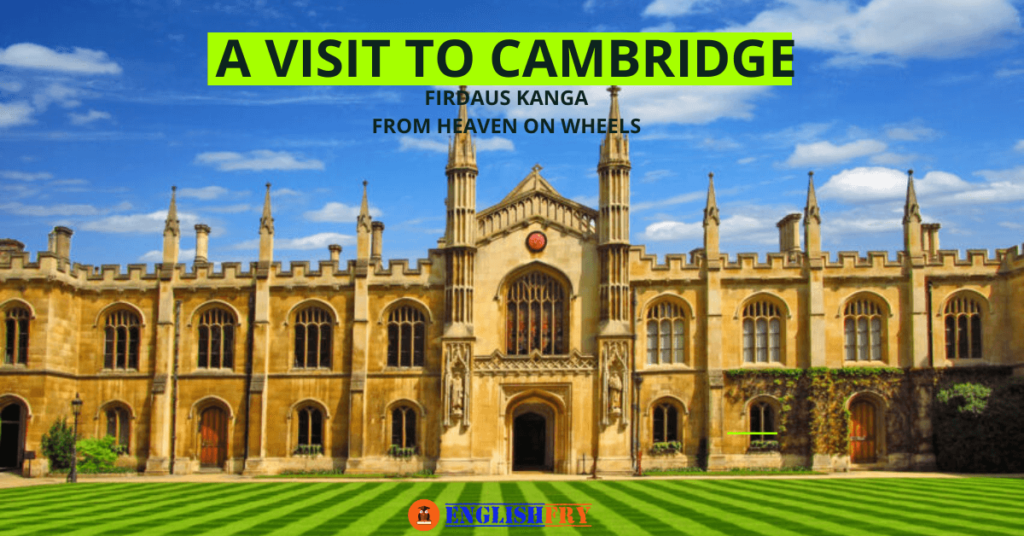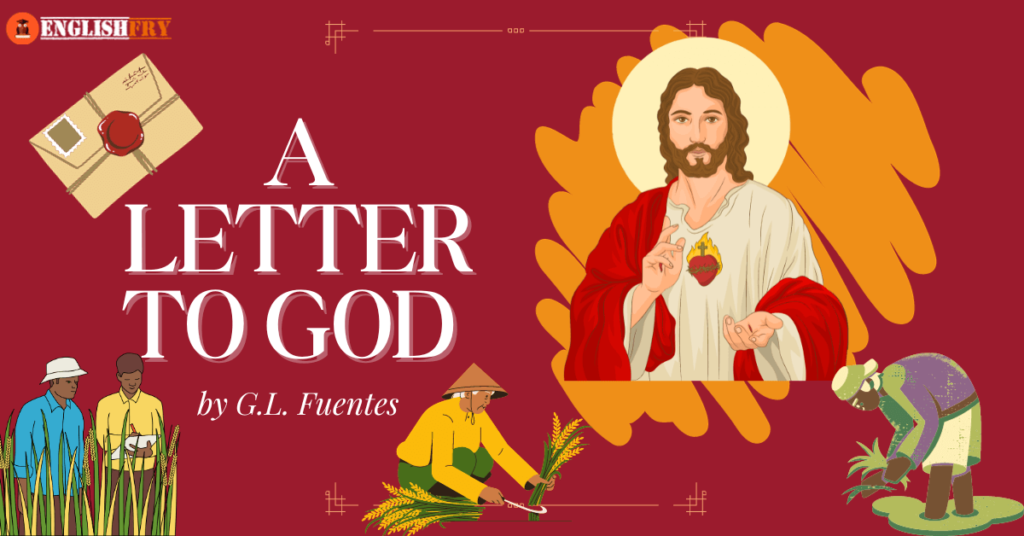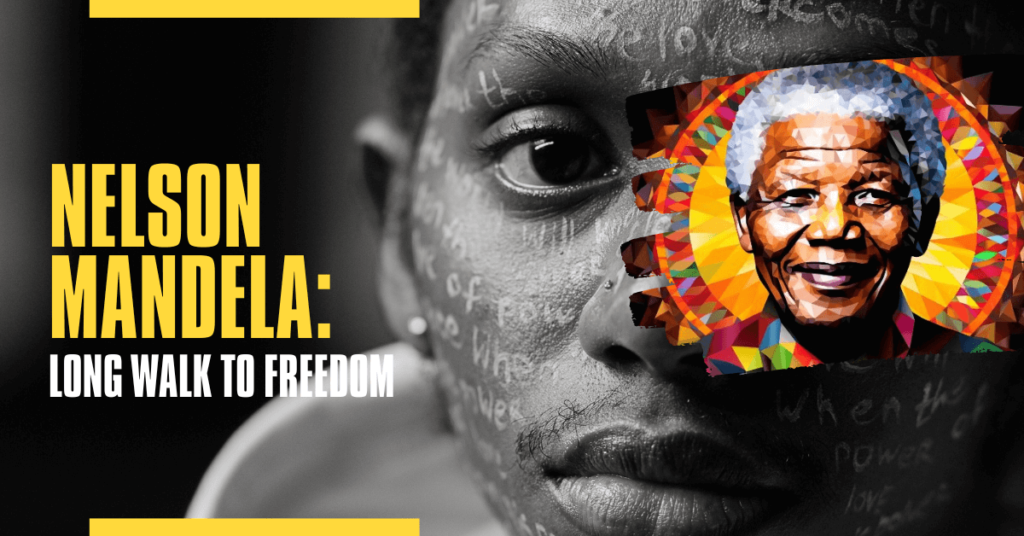Table of Contents
ToggleA Visit to Cambridge Summary
The chapter begins with the narrator reminiscing about a trip to Cambridge, a city famous for its prestigious university and rich cultural heritage. The narrator is accompanied by his/her friends, who are eager to explore the historical and academic aspects of the city.
Upon arrival, they are struck by the majestic architecture of the university buildings, especially King’s College Chapel, which leaves them in awe. The narrator describes the serene atmosphere and the scholarly ambiance that permeates the city.
The group embarks on a guided tour, learning about the illustrious history of Cambridge University, its traditions, and notable alumni. They visit various colleges, libraries, and museums, soaking in the academic and cultural significance of each place.
Throughout the tour, the narrator is captivated by the intellectual legacy of Cambridge and the contributions it has made to education and knowledge. The chapter ends with the narrator expressing admiration and a sense of reverence for the city’s legacy and its role in shaping academia and culture.
The chapter essentially highlights the charm and historical importance of Cambridge, focusing on the awe-inspiring architecture, scholarly environment, and the profound impact of the university on knowledge and learning.

A Visit to Cambridge Summary in Hindi
अध्याय की शुरुआत वर्णनकर्ता द्वारा कैंब्रिज की यात्रा को याद करने से होती है, जो एक शहर है जो अपने प्रतिष्ठित विश्वविद्यालय और समृद्ध सांस्कृतिक विरासत के लिए प्रसिद्ध है। वर्णनकर्ता के साथ उसके दोस्त भी हैं, जो शहर के ऐतिहासिक और शैक्षणिक पहलुओं का पता लगाने के लिए उत्सुक हैं।
आगमन पर, वे विश्वविद्यालय भवनों, विशेष रूप से किंग्स कॉलेज चैपल की राजसी वास्तुकला को देखकर दंग रह जाते हैं, जो उन्हें आश्चर्यचकित कर देता है। वर्णनकर्ता शहर में व्याप्त शांत वातावरण और विद्वत्तापूर्ण वातावरण का वर्णन करता है।
समूह कैंब्रिज विश्वविद्यालय के शानदार इतिहास, इसकी परंपराओं और उल्लेखनीय पूर्व छात्रों के बारे में सीखते हुए एक निर्देशित दौरे पर निकलता है। वे विभिन्न कॉलेजों, पुस्तकालयों और संग्रहालयों का दौरा करते हैं और प्रत्येक स्थान के शैक्षणिक और सांस्कृतिक महत्व को समझते हैं।
पूरे दौरे के दौरान, वर्णनकर्ता कैम्ब्रिज की बौद्धिक विरासत और शिक्षा और ज्ञान में इसके योगदान से मंत्रमुग्ध हो गया। अध्याय का अंत वर्णनकर्ता द्वारा शहर की विरासत और शिक्षा और संस्कृति को आकार देने में इसकी भूमिका के प्रति प्रशंसा और श्रद्धा व्यक्त करने के साथ होता है।
अध्याय अनिवार्य रूप से कैम्ब्रिज के आकर्षण और ऐतिहासिक महत्व पर प्रकाश डालता है, जो विस्मयकारी वास्तुकला, विद्वतापूर्ण वातावरण और ज्ञान और सीखने पर विश्वविद्यालय के गहरे प्रभाव पर केंद्रित है।

A Visit to Cambridge Summary in Assamese
অধ্যায়টোৰ আৰম্ভণিতে কথকজনে কেম্ব্ৰিজ ভ্ৰমণৰ কথা মনত পেলাইছে, যিখন চহৰ প্ৰতিষ্ঠিত বিশ্ববিদ্যালয় আৰু চহকী সাংস্কৃতিক ঐতিহ্যৰ বাবে বিখ্যাত। কথকৰ লগত তেওঁৰ বন্ধুসকলেও চহৰখনৰ ঐতিহাসিক আৰু শৈক্ষিক দিশসমূহ অন্বেষণ কৰিবলৈ আগ্ৰহী।
আহি পোৱাৰ লগে লগে বিশ্ববিদ্যালয়ৰ ভৱনসমূহৰ ভয়ংকৰ স্থাপত্য, বিশেষকৈ কিংছ কলেজ চেপেলে তেওঁলোকক আচৰিত কৰি তোলে, যিয়ে তেওঁলোকক আচৰিত কৰি তোলে। কথকে চহৰখনত বিয়পি পৰা নিস্তব্ধ পৰিৱেশ আৰু বিদ্বান পৰিৱেশৰ বৰ্ণনা কৰিছে।
গোটটোৱে গাইড ট্যুৰত নামি পৰে, কেম্ব্ৰিজ বিশ্ববিদ্যালয়ৰ বিখ্যাত ইতিহাস, ইয়াৰ পৰম্পৰা আৰু উল্লেখযোগ্য প্ৰাক্তন ছাত্ৰ-ছাত্ৰীৰ বিষয়ে জানিব পাৰে। তেওঁলোকে বিভিন্ন কলেজ, পুথিভঁৰাল, সংগ্ৰহালয় ভ্ৰমণ কৰি প্ৰতিটো ঠাইৰ শৈক্ষিক আৰু সাংস্কৃতিক তাৎপৰ্য্যত তিতি থাকে।
গোটেই ভ্ৰমণটোত কেম্ব্ৰিজৰ বৌদ্ধিক উত্তৰাধিকাৰ আৰু শিক্ষা আৰু জ্ঞানৰ ক্ষেত্ৰত ইয়াৰ অৱদানৰ প্ৰতি কথকজনে মোহিত হৈ পৰে। অধ্যায়টোৰ শেষত কথকে চহৰখনৰ উত্তৰাধিকাৰ আৰু শৈক্ষিক আৰু সংস্কৃতি গঢ় দিয়াত ইয়াৰ ভূমিকাৰ প্ৰতি প্ৰশংসা আৰু শ্ৰদ্ধাবোধ প্ৰকাশ কৰিছে।
অধ্যায়টোৱে মূলতঃ কেম্ব্ৰিজৰ মনোমোহাতা আৰু ঐতিহাসিক গুৰুত্বৰ ওপৰত আলোকপাত কৰিছে, ভয়ংকৰ স্থাপত্য, বিদ্বান পৰিৱেশ, আৰু বিশ্ববিদ্যালয়খনৰ জ্ঞান আৰু শিক্ষণৰ ওপৰত গভীৰ প্ৰভাৱৰ ওপৰত গুৰুত্ব আৰোপ কৰিছে।

A Visit to Cambridge Question and answers
- 1. Stephen Hawking said: “I’ve had no choice”. Does the writer think there was a choice? What was it?
Ans. Yes, the writer feels there is a choice for Stephen Hawking and it is to live creatively with the fact of his broken (disabled) body. He should have kept himself busy in doing creative work so that he might feel his mind preoccupied and therefore not less important in society.
- 2. “I could feel his anguish” What could be the anguish?
Ans. The anguish could be that though Hawkin’s mind was full of thoughts he could not give them expression or he could not speak them.
Q 3. What endeared the scientist to the writer so that he said he was looking at one of the most beautiful men in the world?
Ana. The writer thought that he was looking at one of the most beautiful men in the world because he gave one-way smile and he gave an honest answer that he was annoyed when someone like the writer disturbed him in his work.
Q.4. Read about the description of ‘the beautiful man’. Which is the most beautiful sentence in the description?
Ans. The most beautiful sentence in the description is:
“Before you, like a lantern whose walls are worn so this you glimpse only the light inside, is the incandescence of a man”.
Q.5. If ‘the lantern’ is the man, what would its ‘walls’ be?
Ans. The walls of the lantern in Hawking’s case were his skeleton like physical structure.
Q.6. What is housed within the thin walls?
Ans. The eternal soul is housed within the thin walls.
Q.7. What general conclusion does the writer draw from this comparison?
Ans. The writer draws the general conclusion that the glow of the eternal soul is more important than the physical appearance.
- 8. What is the scientist’s message for the disabled?
Ans. The scientist’s message for the disabled was that they should concentrate and focus on what they are good at. He considered things like the disabled Olympics a waste of time.
- 9. Why does the writer, refer to the guitar incident? Which idea does it support?
Ans. Since many years the writer has been trying to play a big Spanish guitar. One night he loosened the strings joyfully. This incident supports the idea that the disabled people should practise only what they are good at.
- 10. The writer expresses his great gratitude to Stephen Hawking. What is the gratitude for?
Ans. The writer expresses his great gratitude to Stephen Hawking for his giving him time. He was obliged to spend time with the bravest man in the world.
- 10. Explain the metaphor used for Cambridge in the text and its significance in Firdaus Kanga’s journey. (3 marks)
Answer: The metaphor for Cambridge in the text is described as “Cambridge was my metaphor for England.” This metaphor signifies that Cambridge symbolizes England for the author, Firdaus Kanga. The importance lies in the transformative experience he had in Cambridge, particularly after meeting Stephen Hawking. It changed his perception of the city. The metaphor highlights how a single meeting in Cambridge had a profound (intense) impact on Firdaus Kanga’s understanding of life and disability.
- 10. Discuss Stephen Hawking’s response to the question about the best thing about being disabled. How does this response contribute to the theme of the text? (3 marks)
Answer: In response to the question Stephen Hawking states, “I don’t think there is anything good about being disabled.” This response contributes to the theme of the text, emphasizing the challenges and limitations that come with disability. Hawking’s perspective reflects the harsh reality of living with a disability.He challenges the notion that there might be positive aspects. This theme is evident (clearly seen) in the text that explores the complexities of disability, portraying it as a difficult reality rather than a source of advantage or positivity.
- 10. Describe the author’s initial reaction upon learning about Stephen Hawking in Cambridge. How does this reaction set the tone for the subsequent events in the text? (3 marks)
Answer: The author’s initial reaction upon learning about Stephen Hawking in Cambridge is described as a moment of shock. This reaction sets a tone of curiosity and anticipation for the later events in the text. This tone of curiosity and eagerness establishes the groundwork for the exploration of the profound exchange between the two extraordinary individuals and the impactful conversation that follows in the narrative.

A Visit to Cambridge MCQ
Question 1:
1.What is the main focus of the text?
- A love story between two disabled individuals
- A meeting between two extraordinary people
- A discussion on the disabled Olympics
- A journey through Cambridge
Correct Answer: b
Question 2:
- Which term is used to describe Firdaus Kanga’s medical condition?
- Paralysis
- Brittle bones
- Claustrophobia
- Motor dysfunction
Correct Answer: b
Question 3:
- How does Stephen Hawking communicate?
- Speaking
- Writing
- Punching buttons on a computer
- Sign language
Correct Answer: c
Question 4:
- What is the metaphor used for Cambridge in the text?
- A walking tour
- A machine-like voice
- A wheelchair
- A metaphor for England
Correct Answer: d
Question 5:
- According to the text, what Chair does Stephen Hawking hold at the university?
- Chair of Physics
- Chair of Astrophysics
- Chair of Mathematics
- Chair of Literature
Correct Answer: b
Question 6:
- What does the guide mention about Stephen Hawking during the walking tour?
- His disability
- His best-selling book
- His role as a journalist
- His walking abilities
Correct Answer: a
Question 7:
- What is the author’s initial reaction upon learning about Stephen Hawking in Cambridge?
- Shock
- Happiness
- Indifference
- Disappointment
Correct Answer: a
Question 8:
- How does Firdaus Kanga feel when he realizes he will meet Stephen Hawking?
- Weak
- Strong
- Excited
- Nervous
Correct Answer: a
Question 9:
- According to the text, what is the best thing about being disabled?
- Discovering kindness in the world
- Enjoying the disabled Olympics
- Experiencing laughter
- Finding happiness in disability
Correct Answer: a
Question 10:
- What advice does Stephen Hawking give to disabled people?
– a. Concentrate on what they are good at
– b. Participate in the disabled Olympics
– c. Avoid wheelchair travel
– d. Focus on physical activities
– Correct Answer: a
Question 11:
- What is the author’s feeling about his body while talking to Stephen Hawking?
– a. Relief and exhilaration
– b. Frustration and exhaustion
– c. Indifference and disappointment
– d. Claustrophobia and fear
– Correct Answer: a
Question 12:
- How does Stephen Hawking describe his experience of people patronizing him?
– a. Amusing
– b. Annoying
– c. Joyful
– d. Indifferent
– Correct Answer: a
Question 13:
- According to the text, what did the author find shocking upon first glimpse of Stephen Hawking?
– a. His wheelchair
– b. His still photograph-like appearance
– c. His physical strength
– d. His motorized wheelchair
– Correct Answer: b
Question 14:
- How does the author describe the body of Stephen Hawking?
– a. Irrelevant and like a case made of shadows
– b. Strong and resilient
– c. Fragile and transparent
– d. Ordinary and unremarkable
– Correct Answer: a
Question 15:
- According to Stephen Hawking, what does he find amusing?
– a. Disabled people
– b. Patronizing behavior
– c. Laughter inside
– d. The author’s presence
– Correct Answer: b
Question 16:
- What does Stephen Hawking suggest about events like the disabled Olympics?
– a. They are a waste of time
– b. They are essential for disabled individuals
– c. They promote laughter
– d. They encourage physical activities
– Correct Answer: a
Question 17:
- How does the author feel after the half-hour meeting with Stephen Hawking?
– a. Relieved and exhilarated
– b. Annoyed and disappointed
– c. Inspired and fulfilled
– d. Weak and exhausted
– Correct Answer: c
Question 18:
- What invitation does Stephen Hawking extend to the author after the meeting?
– a. To stay and have some tea
– b. To leave immediately
– c. To visit him again the next day
– d. To write about their meeting
– Correct Answer: a
Question 19:
- What is the size of the garden mentioned in the text?
– a. Small as a room
– b. Big as a park
– c. Medium-sized
– d. Not described in the text
– Correct Answer: b
Question 20:
- How does the author describe Stephen Hawking waving goodbye?
– a. Physically waving
– b. Smiling with admiration
– c. Not waving
– d. Waving emotionally
– Correct Answer: c
Founder of Englishfry.com, a captivating and knowledge-driven blog & Founder of Android app/website Studyfunnel.com, an online Mock Test Series Portal. With a wealth of experience spanning over 16+ years, he has excelled as an Ex-Asst.Professor, Teacher, Amazon published author, Website Developer, Graphic Designer,Blogger,Poet, and Creative academic content writer publisher of 4 academic books available Online on Amazon & Flipkart. His tryst in Literature helped him realize his love for writing and telling stories. A tech-savvy language nerd by day and, a passionate writer by night, he now translates his experiences into tales of wisdom served with a side of humor.His widely recognized profound insights ,captivating writing style of weaving words make him contribute to prestigious publications and a sought-after authority in the field that transport readers to extraordinary worlds.








